Galapagos emergency over stranded cargo ship
- Published
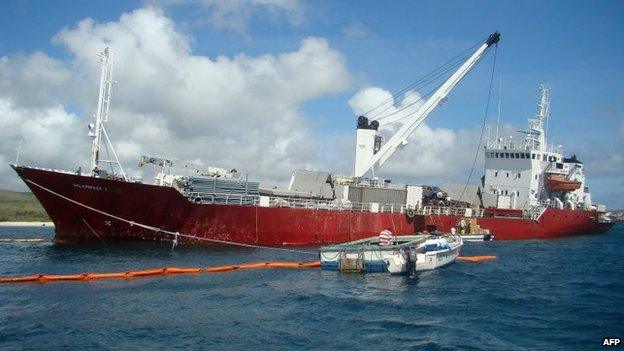
The ship's cargo has been emptied, but it is feared that pollutants could spill over
Ecuador has declared an emergency in the Galapagos Islands, saying that a cargo ship which ran aground last week still poses a threat to the archipelago's fragile ecosystem.
The ship's cargo has been offloaded, but the authorities said pollutants, like motor oil, inside the vessel could spill and cause environmental damage.
They were working to remove the ship.
The Galapagos are home to unique animal species such as the giant tortoise, marine iguana and flightless cormorant.
In 1978, the chain of volcanic islands were declared a World Heritage Site by Unesco, the United Nations Educational, Scientific and Cultural Organization.
The Ecuadorean freighter, the Galapaface I, became stranded off the rocky coast of the island of San Cristobal last Friday.
It was carrying more than 70,000 litres (15,400 gallons) of diesel fuel.
'Environmental risk'
The governor of the Galapagos said that, despite having emptied all the fuel, some pollutants remained inside.
"The ship is stranded and continues to present an environmental risk for the Galapagos Marine Reserve and must leave the area," Jorge Torres told the Efe news agency.
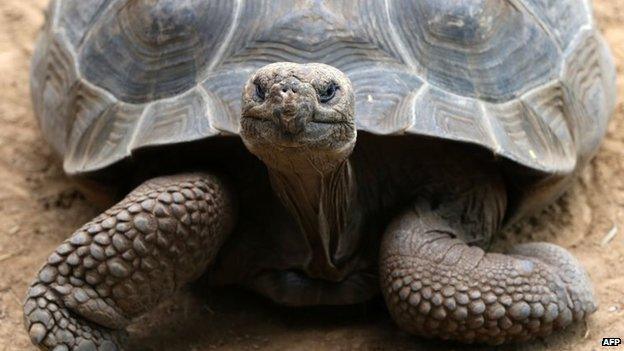
The Galapagos are home to unique animal species such as the giant tortoise
In a statement, the Ecuadorian government said the emergency measure would free up resources to remove the vessel.
"As a result of the emergency declaration the Risk Management Secretariat will be able to directly carry out the purchase of goods, the procurement of services and the work that are required to overcome this emergency."
It did not say how long it would take to complete the removal of the vessel.
Darwin's finches
This is not the first ship accident in the Galapagos.
In 2001, an oil tanker also became stranded off the coast of San Cristobal, spilling fuel and decimating the marine iguana population.
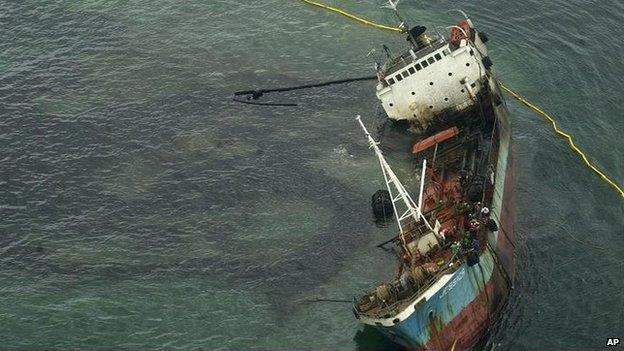
In 2001, an oil tanker became stranded, spilling fuel and killing marine wildlife
The archipelago, about 1,000 kilometres (625 miles) off the South American continent, is a major tourist attraction in Ecuador.
It first became known for its endemic finches, which were studied by the British scientist Charles Darwin in the 1830s.
Related topics
- Published1 January 2014
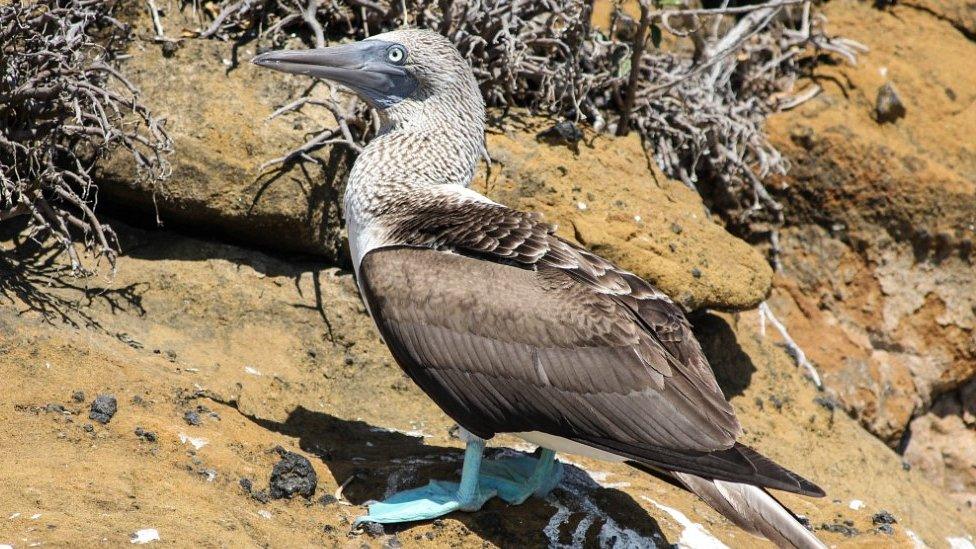
- Published13 September 2013
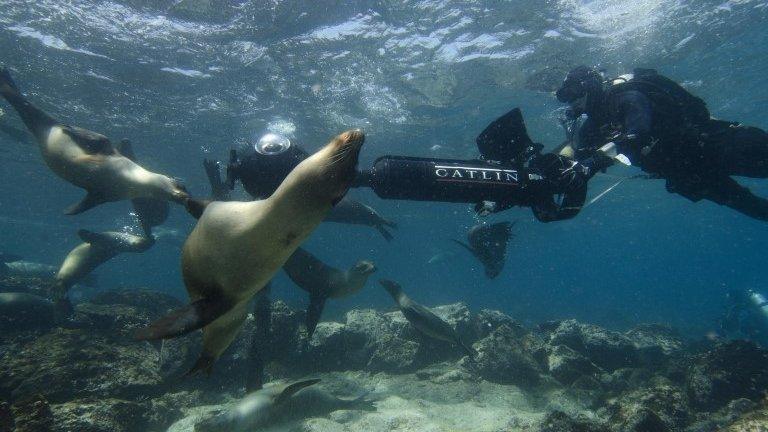
- Published29 July 2010